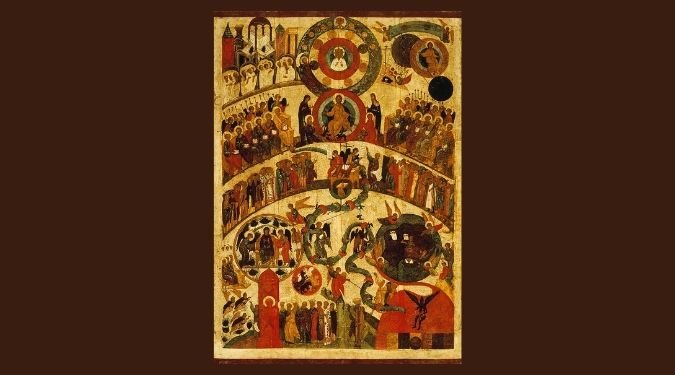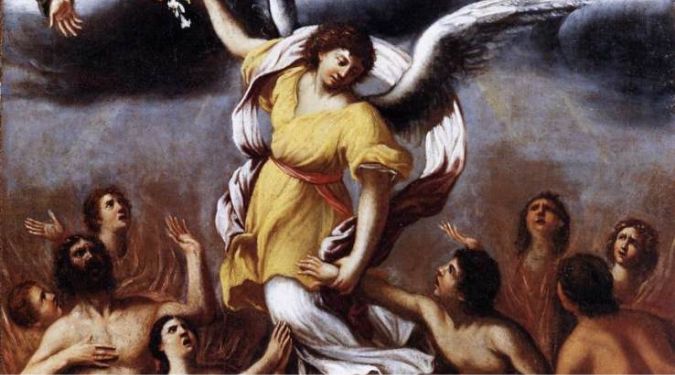The Catholic Church teaches that those who die before Christ comes again will be judged twice: once immediately at their deaths, called the particular judgment, and then again in a second, general or final judgment at the end of time.
On the particular judgment the Catechism of the Catholic Church says:
Each man receives his eternal retribution in his immortal soul at the very moment of his death, in a particular judgment that refers his life to Christ: either entrance into the blessedness of heaven-through a purification or immediately,– or immediate and everlasting damnation.
CCC 1022
There’s also the final judgment that occurs after the resurrection of the dead, which we discussed in another post. Again, from the Catechism:
The resurrection of all the dead, “of both the just and the unjust,” will precede the Last Judgment…Then Christ will come “in his glory, and all the angels with him. . . . Before him will be gathered all the nations, and he will separate them one from another as a shepherd separates the sheep from the goats, and he will place the sheep at his right hand, but the goats at the left. . . . And they will go away into eternal punishment, but the righteous into eternal life.”
CCC 1038
Why should all men, Christian or not, be subject to a final judgment at the end of the world and upon being resurrected if they were already judged once before?
Let’s consult a treasure of the Church, the Roman Catechism, a fruit of the Council of Trent. That catechism’s Article VII gives at least four reasons for the final judgment:
- The good and evil we do during our lives cannot be fully accounted for until the end of the world. Our deeds, even the smallest ones, have a ripple effect through time and through the influence they have had on others. We will not know the full effect of our own good and evil acts until the end of the world.
- The General (Last) Judgment occurs after the resurrection of the body because the body should share in the rewards and punishments with the soul. That is because our deeds, both good and evil, were done in the body.
- The General Judgment will be public so that truth and justice will finally be victorious. The misunderstandings we harbor, caused by seeing the apparent flourishing of the wicked and by witnessing the affliction suffered by the good on earth, will be corrected and praise given to God, who will finally be seen to have ordered all things in His wisdom.
- Lastly, the justice of God demands that the just “recover, in the public assembly and judgment of all men, the good name of which they had been unjustly deprived before men.” In other words, the reputations of the righteous who were maligned by evil people will be restored.
Section 1039 of the Catechism of the Catholic Church sums this up for us:
“In the presence of Christ, who is Truth itself, the truth of each man’s relationship with God will be laid bare. The Last Judgment will reveal even to its furthest consequences the good each person has done or failed to do during his earthly life..”
CCC 1039
So, in the end, Christ’s victory will not only be one of love, but of truth.






